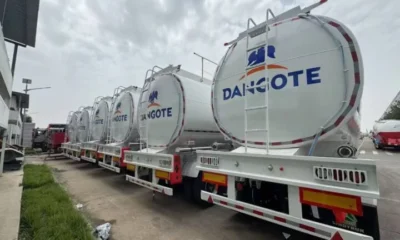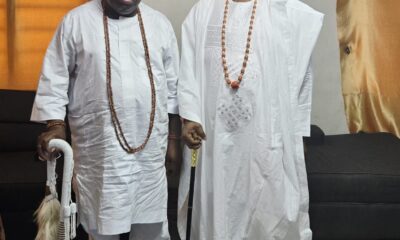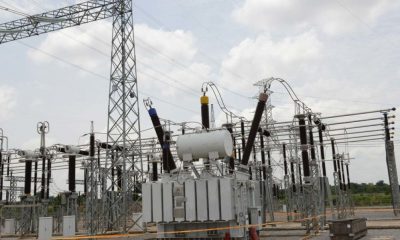BIG STORY
POWER OUTAGE: National Electricity Grid Crashes From 3,703MW To 9MW — FG

BIG STORY
Adron Homes Launches Lemon Friday Plus Promo 2025 With Discounts, Flexible Payments, And December Rewards
BIG STORY
UBA Hosts Global Leaders At UNGA 2025, Launches Whitepaper On Unlocking Africa’s Potential
BIG STORY
Iyan Olodo: The City Pulse Lounge Revives Authentic Yoruba Dining In Ikeja
-

 BIG STORY2 days ago
BIG STORY2 days ago44-Year-Old Pakistani Doctor Suhail Anjum Leaves Patient In The Middle Of Surgery To Have Sex With Nurse In UK
-

 BIG STORY5 days ago
BIG STORY5 days agoDangote Refinery To Launch Free Nationwide Petrol Delivery September 15, Sets Ex-Gantry Price At N820
-

 BIG STORY5 days ago
BIG STORY5 days agoUPDATE: Self-Acclaimed ‘Obi Of Lagos’ Admits N1.5bn Installation Was Fraud Scheme — Police
-

 BIG STORY5 days ago
BIG STORY5 days agoJUST IN: Air Peace Crew Tested Positive For Alcohol, Drug — NSIB Report
-

 BIG STORY17 hours ago
BIG STORY17 hours agoNASU, SSANU Join ASUU To Threaten Strike Over Unpaid Salaries, Allowances
-

 BIG STORY2 days ago
BIG STORY2 days agoFuel Subsidy Removal Saved Nigeria From Bankruptcy — Sanusi
-

 BIG STORY4 days ago
BIG STORY4 days agoNew Dawn in Isara-Remo: Aare Adetola Emmanuelking Felicitates With Odemo-Elect Of Isara
-

 BIG STORY13 hours ago
BIG STORY13 hours agoBREAKING : DSS Files Charge Against Sowore, Facebook, X Over False Claim Against Tinubu
























